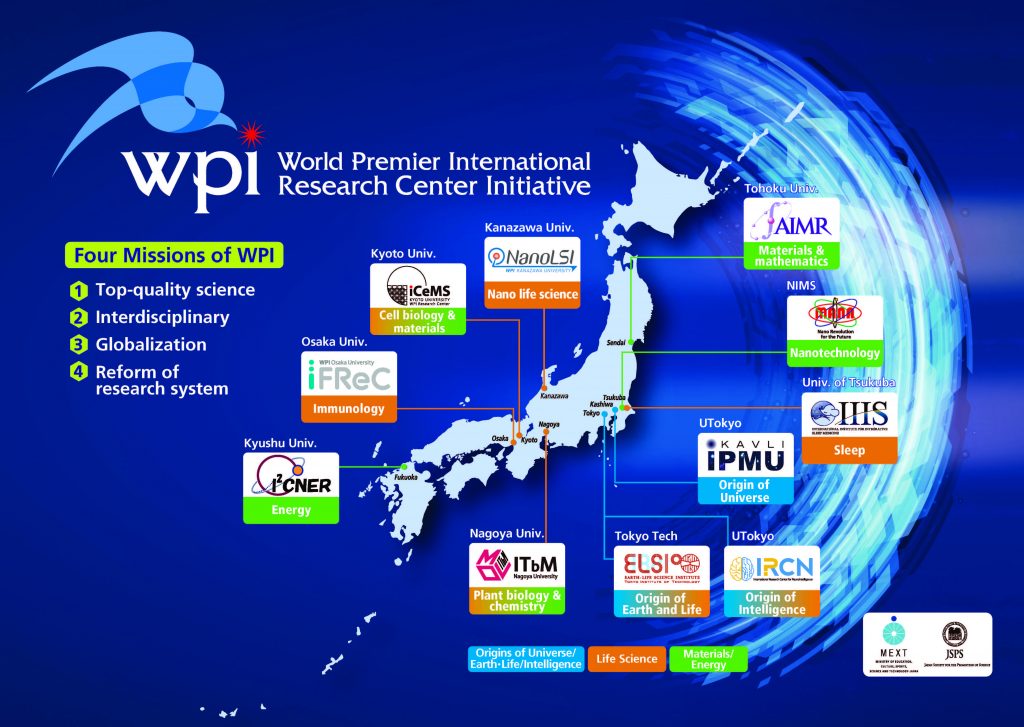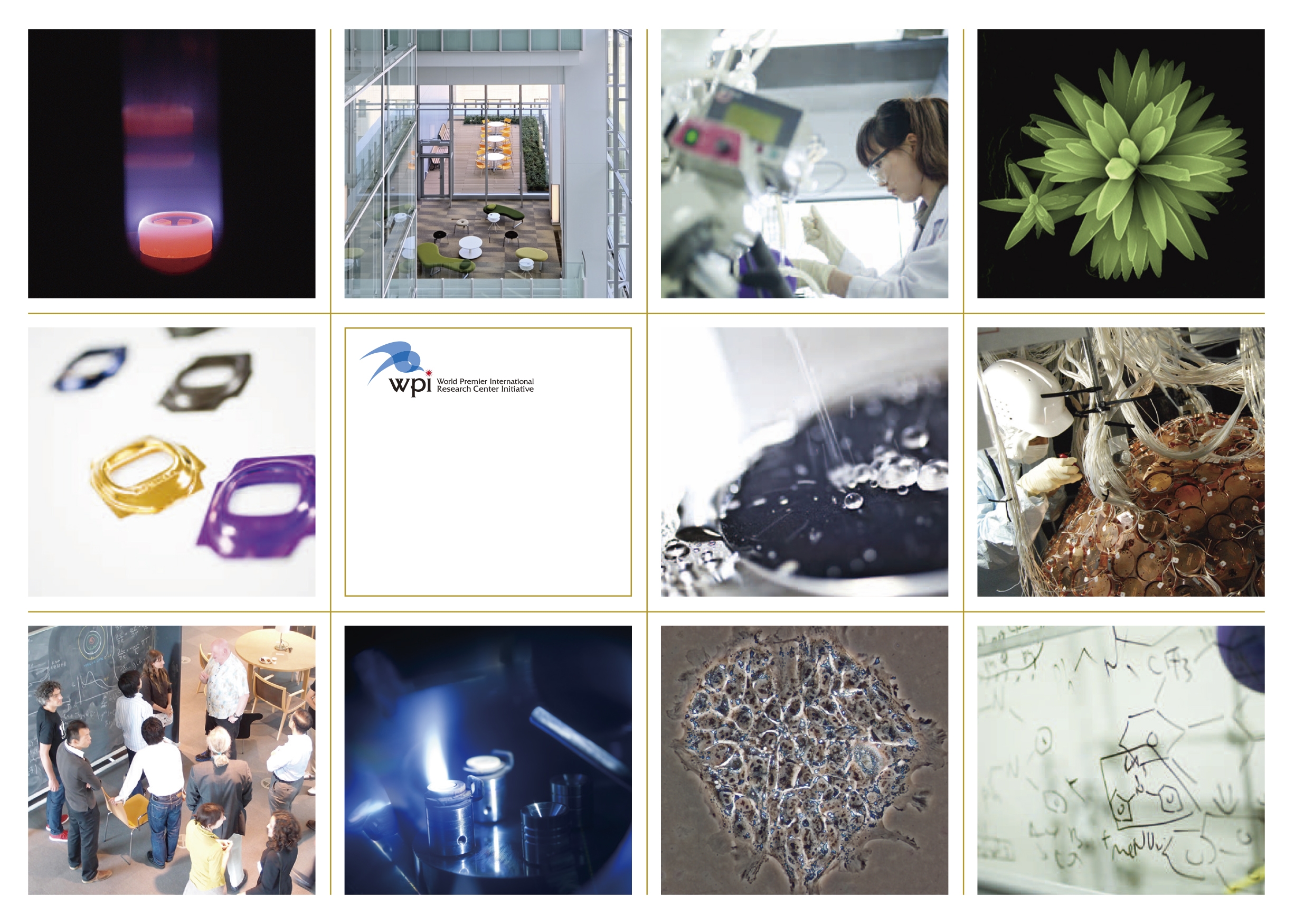WPI
The World Premier International Research Center Initiative (WPI) was launched in 2007 by the Japanese government’s Ministry of Education, Culture, Sports, Science and Technology (MEXT) with the goal of building within Japan “globally visible” research centers that maintain a very high research standard and outstanding research environment in order to attract top-tier, internationally-recognized researchers from around the world. In 2007, 5 WPI Centers were established throughout Japan: AIMR (Advanced Institute for Materials Research), Kavli IPMU (Kavli Institute for the Physics and Mathematics of the Universe), iCeMS (Institute for Integrated Cell-Material Sciences), IFReC (Immunology Frontier Research Center), and MANA (International Center for Materials Nanoachitectonics). In 2010, I2CNER (International Institute for Carbon-Neutral Energy Research) became the sixth WPI Center. In 2012, three more centers were added to the WPI Program: IIIS (International Institute for Integrative Sleep Medicine), ELSI (Earth-Life Science Institute), and ITbM (Institute of Transformative Bio-Molecules). In 2017, two additional centers joined the WPI Program: IRCN (International Research Center for Neurointelligence) and NanoLSI (Nano Life Science Institute). These centers are given a high degree of autonomy, allowing them to virtually revolutionize conventional modes of research operation and administration in Japan.
The requirements for each WPI Institute are fourfold:
1. Cutting-edge research
2. Fusion (interdisciplinary research)
3. Internationalization
4. Reformation of the research culture
To view or download the full WPI Brochure, please click here.




